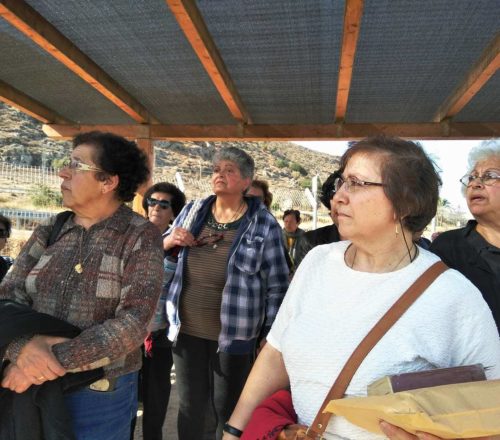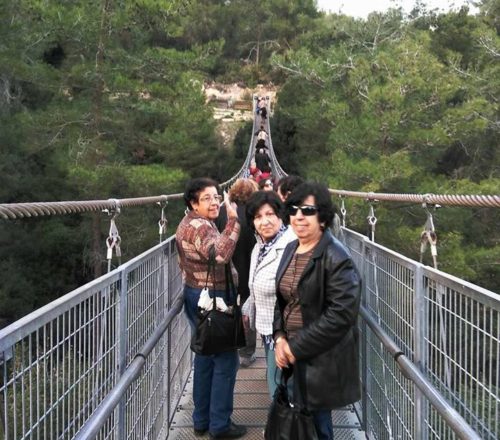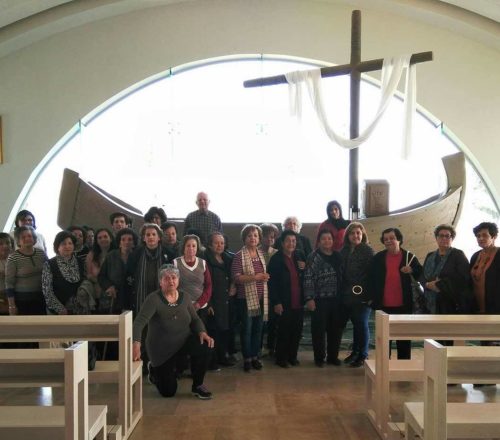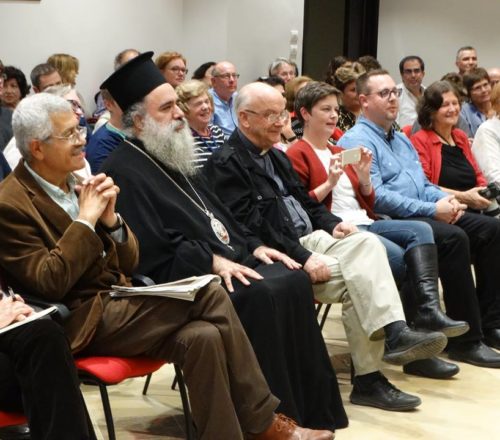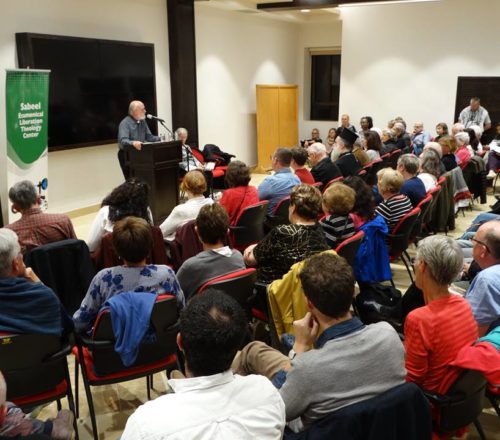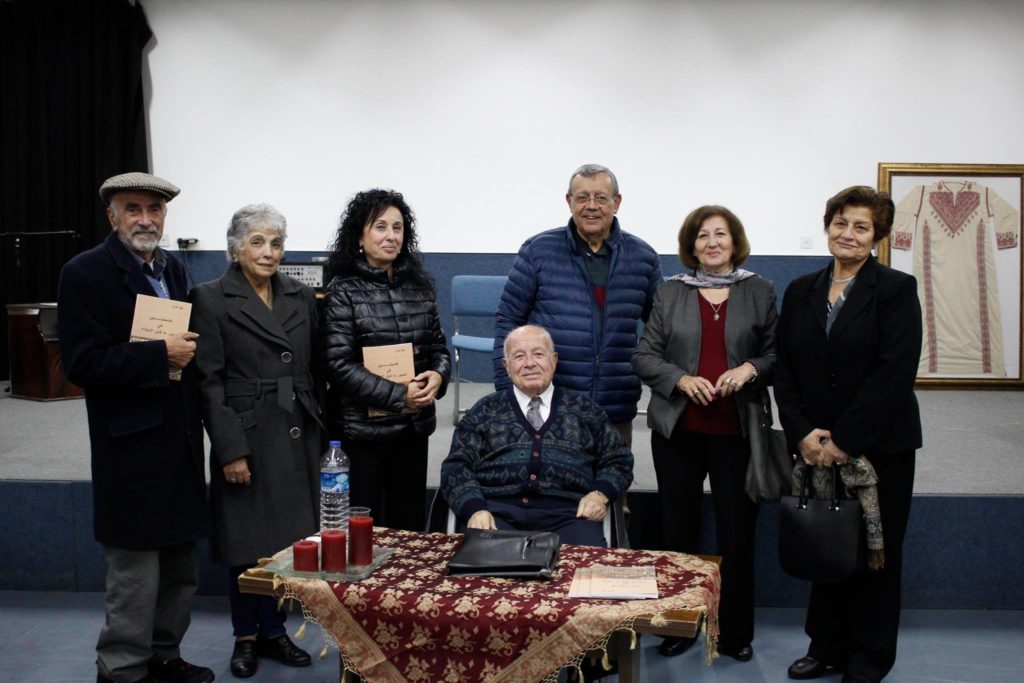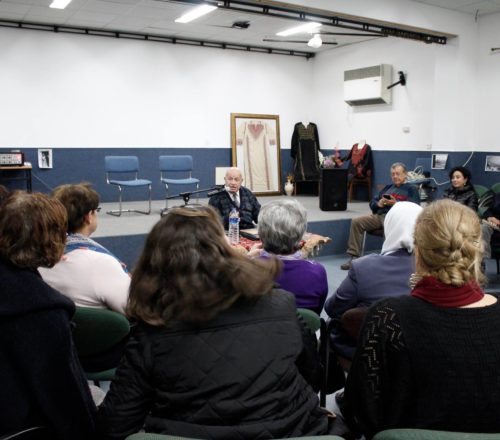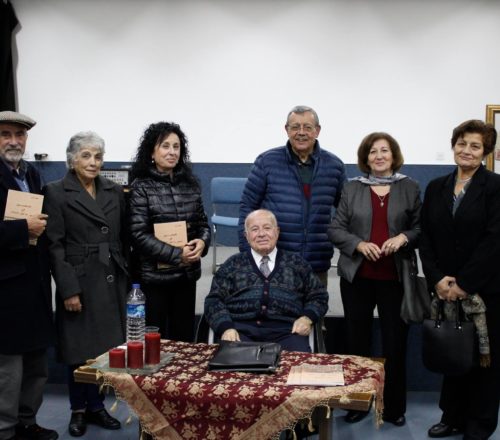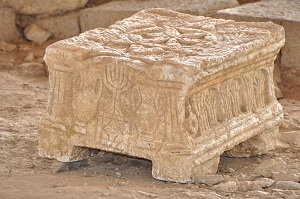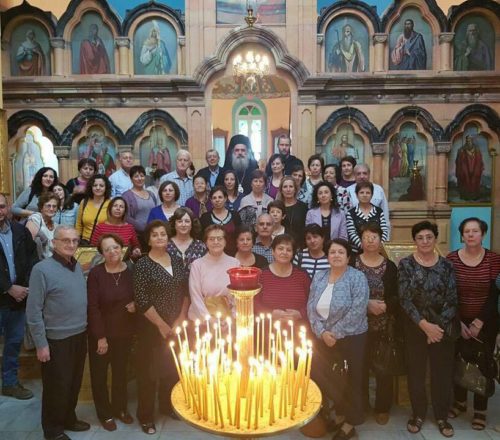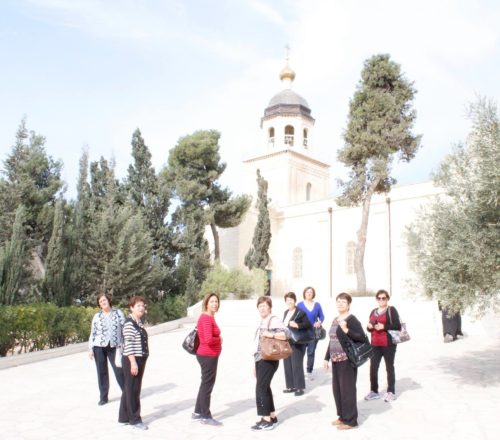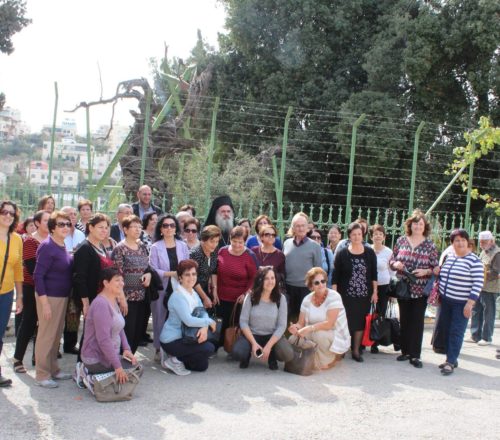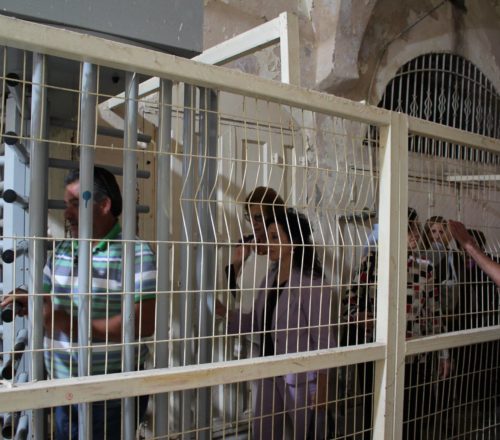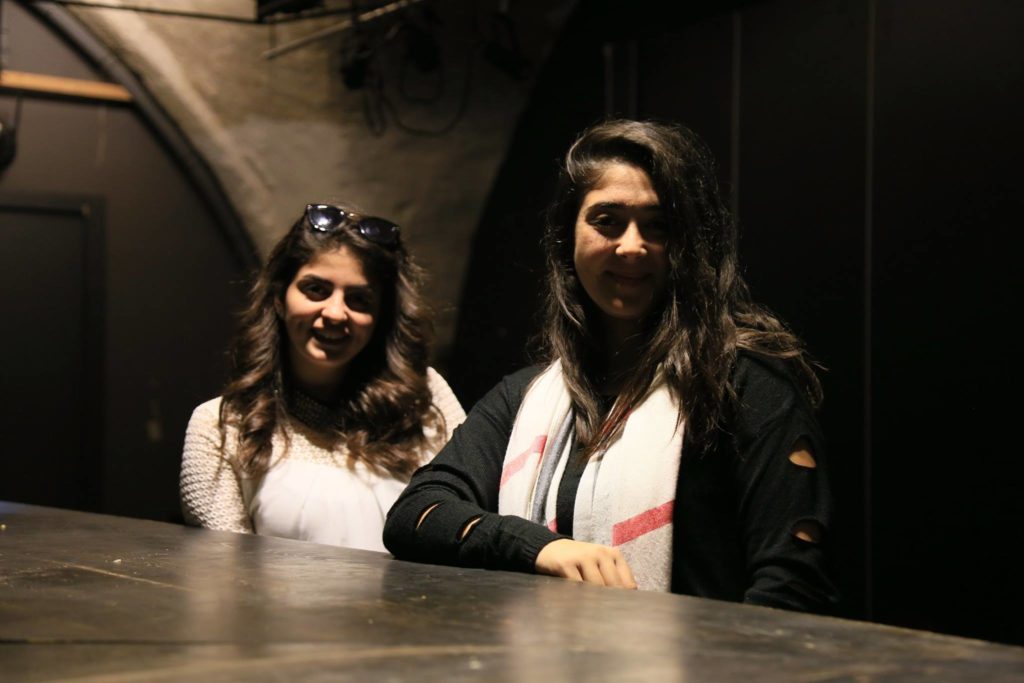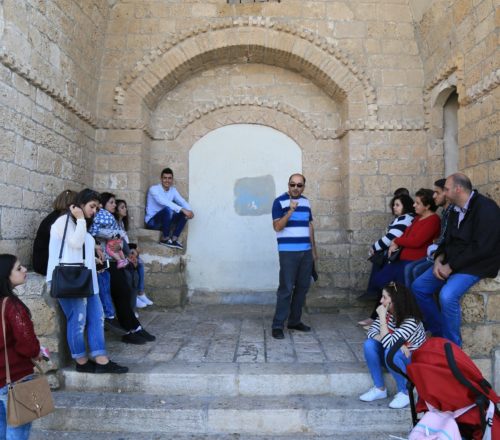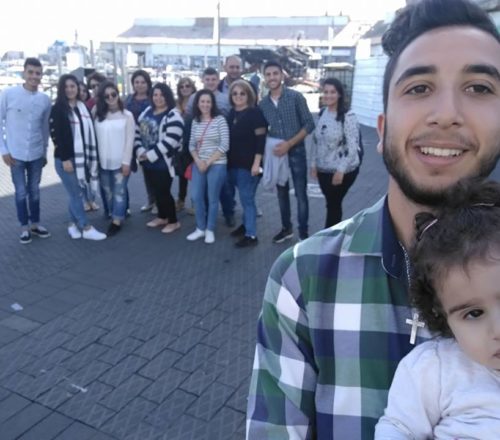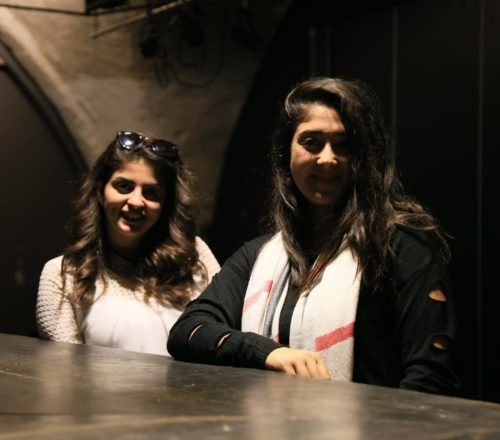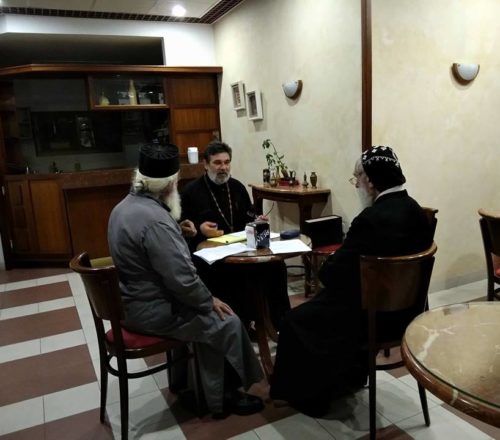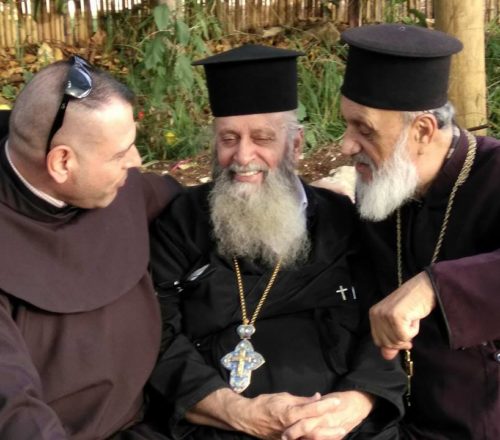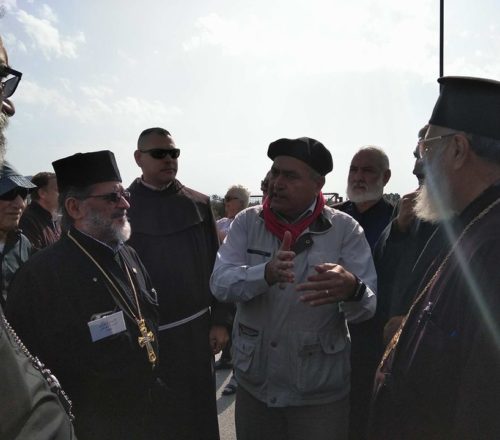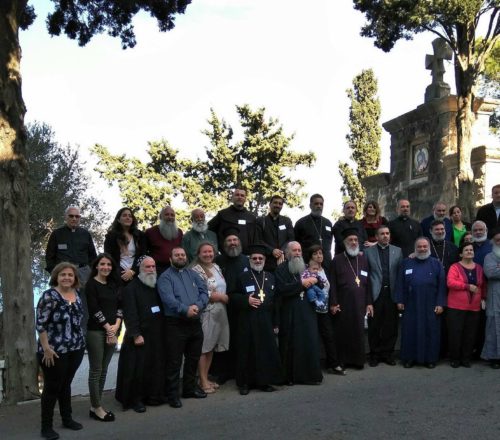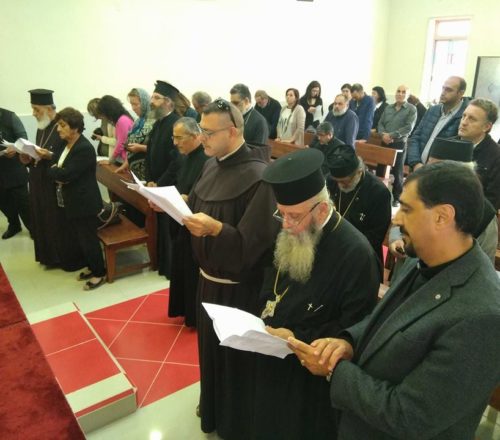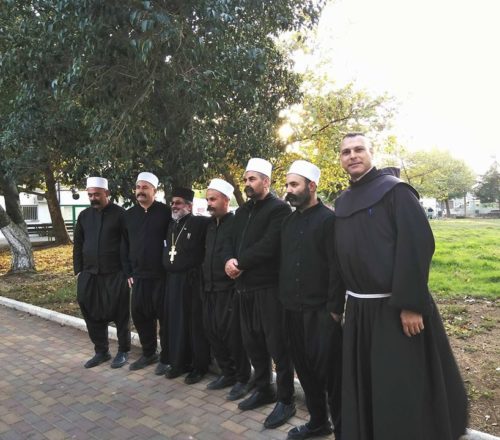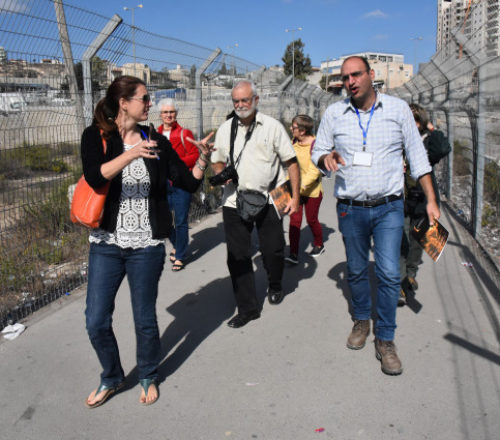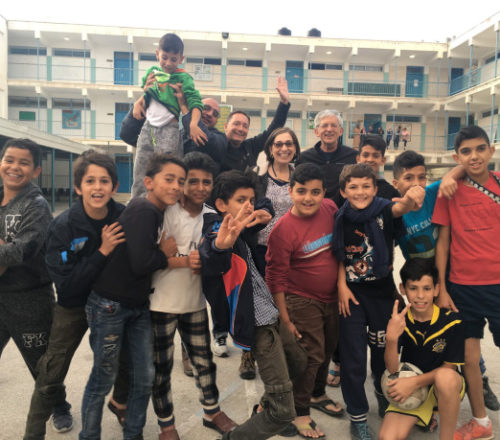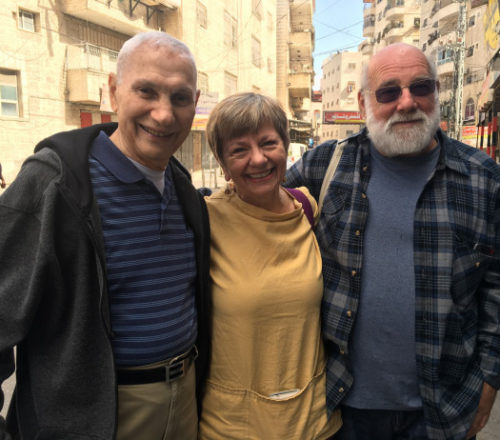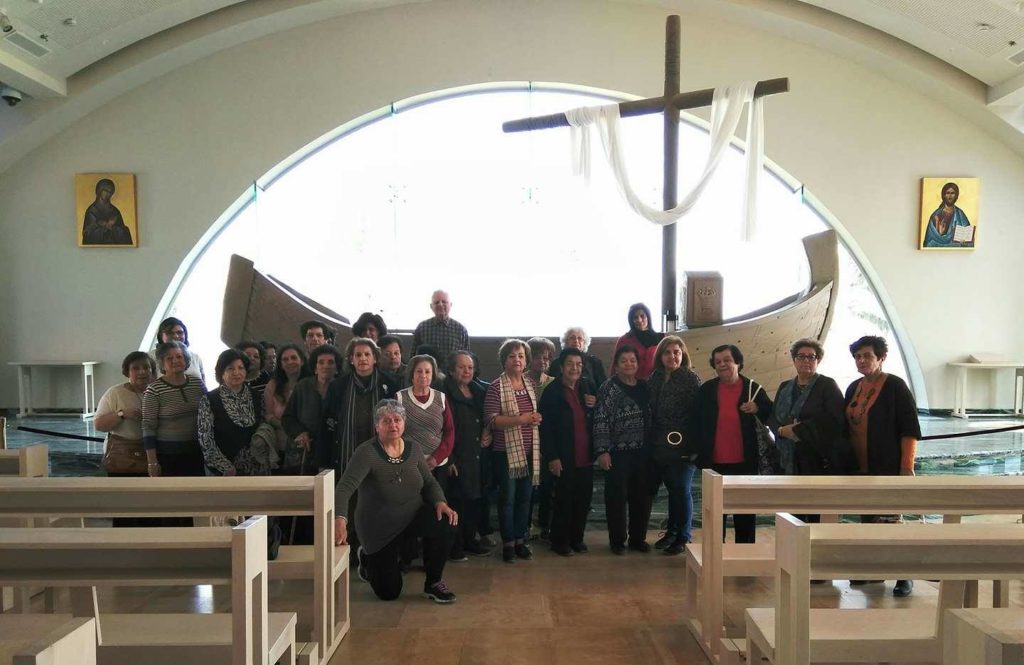 December 2nd , Sabeel held another educational trip for women from Jerusalem to visit Haifa and Tiberius. The purpose of the trip was to build friendships and networks among the community in Jerusalem.
December 2nd , Sabeel held another educational trip for women from Jerusalem to visit Haifa and Tiberius. The purpose of the trip was to build friendships and networks among the community in Jerusalem.Category: Latest News
A Palestinian Theology of Liberation
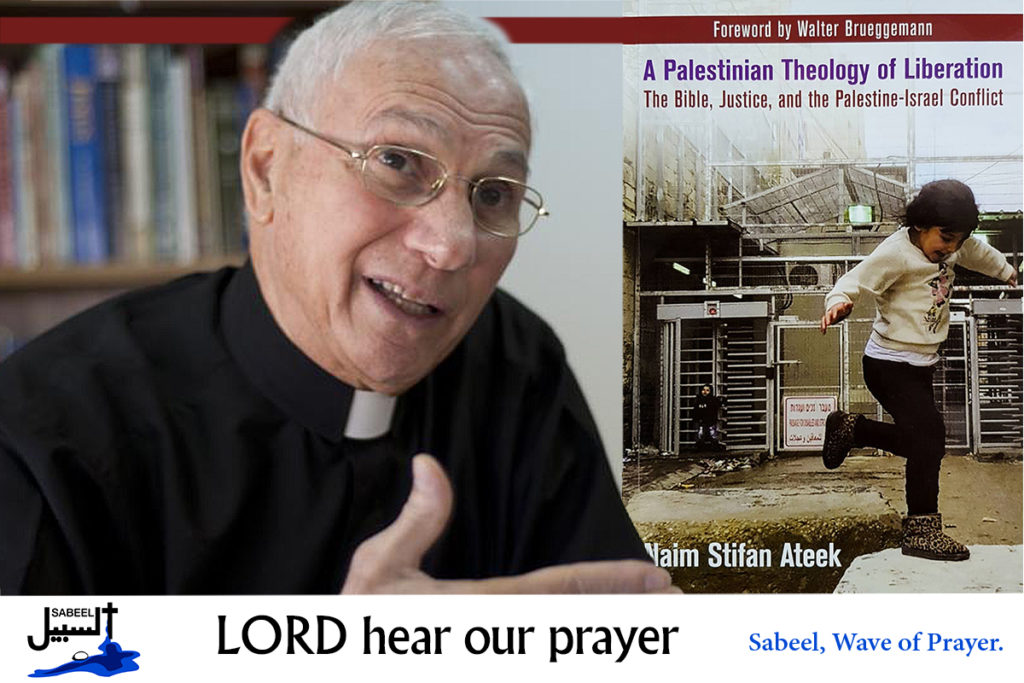
On Friday, November 3, 2017 130 people gathered at Notre Dame Center in Jerusalem, as Sabeel, together with Bilda (Swedish Christian Study Centre), The Educational Bookshop and the Tantur Ecumenical Institute hosted a book launch to introduce Rev. Naim Ateek’s latest work, A Palestinian Theology of Liberation; The Bible, Justice and the Palestine-Israel Conflict (Orbis, 2017). Following are excerpts from endorsements given by Cedar Duaybis and Rev. Páraic Réamon:
Rev. Páraic Réamon:
From Gutiérrez and Ateek, Gustavo and Naim, I and many others have learned that the calling of the worldwide church – a calling the Western church finds particularly challenging – is to stand with the poor and the downtrodden. But that calling is also to invite those who tread them down to stop doing that – to invite the exploiter, the oppressor and the dominator instead into the new community of those who live as equals because we are all God’s children.
My friend Robert Smith was blogging recently about the New Christian Zionism. He concluded that all of us are confronted with a threefold task: “Now is the time for a new conversation about Jewish-Christian-Muslim relations, a new conversation about the Israeli-Palestinian conflict, and a new conversation about historical Christian responsibility.”
In that complex conversation, the Palestinian liberation theology that Naim began now almost thirty years ago, and that continues today in his own writings but now also in the writings of so many others, is an essential voice that must be heard.
Let my last word therefore be Walter Brueggemann’s word. “This important book will be a great learning among us to which Western Christians of every ilk should pay attention.”
May it be so.
Cedar Duaybis:
The context is Palestinian, the experience is Palestinian, the need is Palestinian and the theologian is Palestinian, but the Theology is liberating, and the Theology is liberated. “A theology of liberation is a way of speaking prophetically and contextually to a particular situation, especially where oppression, suffering and injustice have long reigned.“
Rev. Páraic Réamon is currently serving as pastor of St. Andrew ‘s Scots Memorial Church in Jerusalem. Cedar Duaybis is a co-founder of Sabeel.
…The Sabeel Contemporary Way of the Cross

Sabeel organized for our friends and partner at Menonite Central Committee a 3 hour tour in Jerusalem. During the tour we visited the village of LIfta, the French Hill settlement and the Sabeel office. The high light of the tour was meeting three young children from the camp and listen to their stories. Prayers and reflections were read at a very stop we made.
..A History of Palestine
Balfour & Religious Extremism
A Visit to Hebron
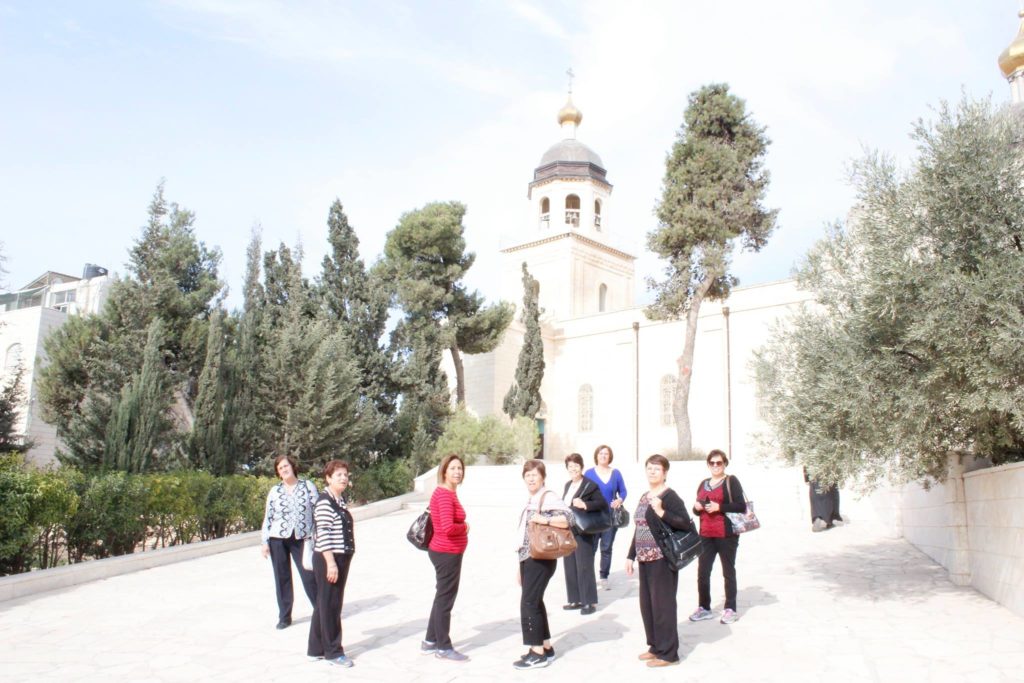
November 18th, Sabeel Nazareth organized a solidarity visit for over 50 people to the City of Hebron. The trip included morning devotions at the Russian Orthodox Church, the only Church in Hebron. The morning devotions were led by Bishop AttAllah Hanna. The day trip included a visit to the Tomb of the Patriarchs, a tour in the Old City and an opportunity to understand the realities of life under occupation and Settler Harassment.
Yaffa – The Bride of the Sea
Clergy Retreat

November 7th, Sabeel held its Clergy annual retreat at the City of Haifa. The theme of the clergy’s spiritual retreat was “how should the Church deal with the “Other””. Sabeel also held lectures by lay people to represent the concerns of the community. The Retreat included a visit to the occupied Golan Heights with a meeting and worship with the two only Christian families who have remained there. Sabeel Clergy visited the Druze community and its religious leaders
Balfour Declaration Centenary Service

St. George’s Cathedral, Jerusalem
A Liturgy of Penance and Hope
Nov. 2, 2017, 5 pm
Thank you, Amos Trust, for taking this initiative and planning this important service that laments the past and looks in hope to the future. In particular, I would like to thank Canon Garth Hewitt, the founder of Amos Trust, and its present director the Rev. Chris Roseand all the friends that have come from the UK to join usand who had a hand in the planning and organizing of this service.
In a special way, I would like to thank all those who walked all or part of the way from England to Jerusalem — over 3000 miles! Thank you for the strong message of solidarity which your march conveys. Thank you for your courageous stand with our Palestinian people and against all the injustice and suffering that the Balfour Declaration has caused to our people. What you have done as British citizens is an amazing gesture of solidarity and an expression of yourcommitment to exposing the deceptions and lies thathave happened and the need for the implementation of truth and justice now. I want to assure you that we value what you have done and we thank you.
I am very thankful for your apology.Palestinians have been demanding an apology from the British government. Sadly, prime ministers and presidents, generally speaking, do not have the humility nor the moral courage and integrity to admit the crimes and wrongs perpetrated by their governments. I was extremely saddened when President Obama visitedHiroshima,but did not offer an apology to the Japanese peoplefor the death of hundreds of thousands of innocent people when America rained destruction and annihilation through its atomic bomb. I am reminded when Josef Ben Eliezer came to our Sabeel international conference in 2008 and told us his story, when he,with other Israeli soldiers, in 1948 drove out the people of Lyddafrom their homes, at gun point, beating them and robbing them of even the little money they had. He told us his story and he apologized and asked for our forgiveness. Thank you,Chris,for offering an apology. I know that you represent many British people who feel that the Balfour Declaration reflected an imperial and colonial spirit.The British government failed to see the Palestinian Arabs, the indigenous people of the land, as human beings. They saw us as less than humans, a lesser breed that they could dispense of.
Thank you for taking a moral and a Christian stand. The apology is not only an expression of your sorrow and lament for the wrongs your country has committed against our people,itarises from your Christian faith that expects us to confess the wrongs and the injustices that have been committed against our brothers and sisters.In a theological sense, the sin of Balfour was his failure to practice the love of neighbor.
The past hundred years have brought unimaginable suffering on our people. Thousands upon thousands of Palestinians have been killed,and many more injured. Hundreds of thousands of Palestinians have been dispossessed from their land and property and made refugees, as my family was, when we were evicted at gun point from our hometown Beisan. We were stripped of our rights and of our God-given human dignity. Balfour made it possible for the Israeli government to dominate, dehumanize, and discriminate against the Palestinians.Even today,many conscientious Jews callwhat Israel is doing to the Palestinians a form of apartheid, worse than what was experienced in South Africa.From one perspective,many of the crimes that Israel committed against our people were a ramification of the Balfour Declaration. Israel’s injusticeslowed Palestinian progress and shattered their dreams. Yet, thank God that, in spite of it all, the Palestinians have persevered and will ultimately vanquish the injustice through the power of nonviolence and the support of the international community.
One of the great tragedies of the Declarationis the fact that Balfour, as a Christian Zionist, believed that he was doing God’s will by making it possible for Jews to return to their ancient homeland. He saw himself as a second Cyrus, the Persian king who allowed Jews to return to Palestine from exile. It seems that that kind of Restorationism, Messianism, end-of-the-world theology, and second coming of Christ theology were largely based on a poor and questionable interpretation of the Bible.
Frankly, I cannot deduce any positive element from the Balfour Declaration. The second part is as bad as its first part when one studies it carefully through the eyes of its victims, the Palestinians.
Therefore,friends, help us to make the comingyears focus on Palestine. Help us to put a stop to all Israeli injustice and oppression against our people, the Palestinians.
We ask you to urge the British government to recognize Palestine as a state as soon as possible. Once that happens, many other countries will follow suit.
Make Britain support the establishment of a sovereign Palestinian state in accordance with international law so that Palestinians will have their national and political rights as well as their civil and religious rights protected.
Make the British government stop Israel’s settlement policy and its encroachment on Palestinian land.
Britain needs to make amends to the Palestinians by standing with them and supporting them as they build their state.
You, our friends, need to work diligently against Christian Zionists’abuse and misinterpretation of the Bible.
It is time for Palestine. Biblically speaking, God is glorified in the work of justice. Jesus has called us to be peacemakers and when we are engaged in making peace based on truth and justice, we are indeed children of God.
Thank you again for coming. Let us work together for the achievement of justice, peace, and reconciliation. Amen
Canon Naim Ateek
Chair of Sabeel Board, Jerusalem

